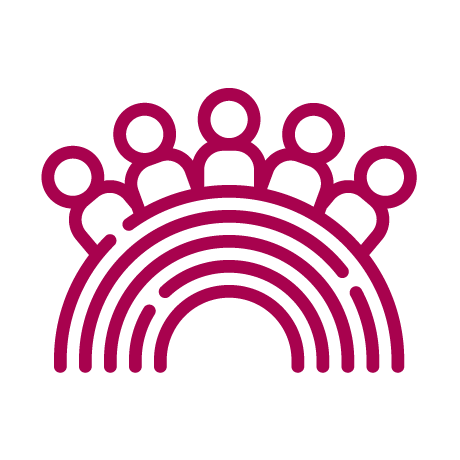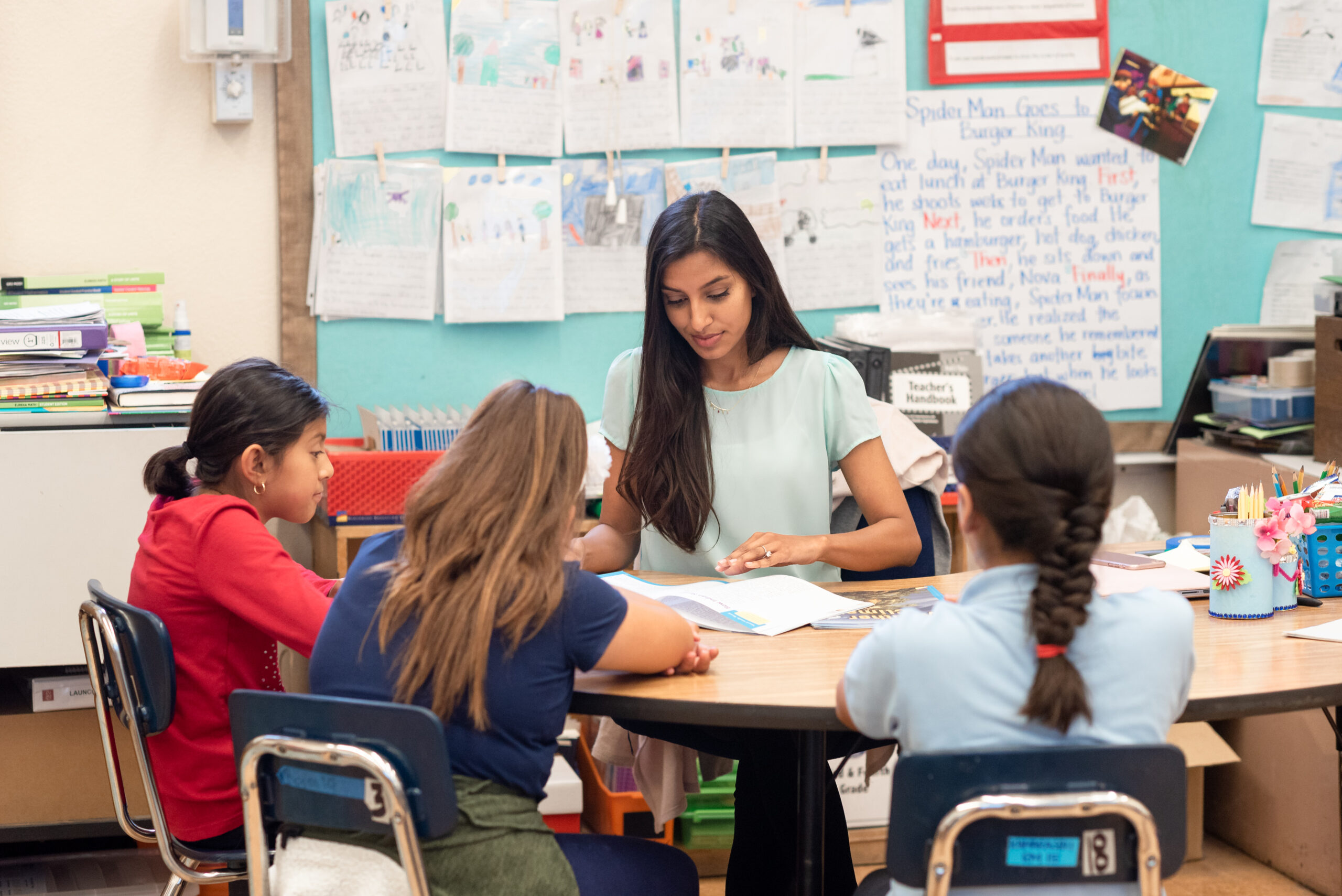Topline Summary
Prior to closing all school buildings in March 2020, Los Angeles Unified Schools celebrated record-high graduation rates and record-low chronic absenteeism rates. These important signs of progress could not mask the inequities that a closer look at the data revealed. While 78.1% of students graduated, only 32.1% of Black and 38.7% of Latinx students met or exceeded standards on the Smarter Balanced English Language Arts assessment compared to 68.1% of white students and 76.4% of Asian students. This disparity is just one example of the massive opportunity gaps facing students of color, students experiencing poverty, students with disabilities, and English as a second language students that existed in Los Angeles at the end of the 2019 school year. These opportunity gaps are the result of decades of systemic racism and inequities. The pandemic, and eighteen months of disrupted learning, turned these opportunity gaps into gaping holes that continue to grow due to inequitable access to resources and learning.
The urgency of this moment, compounded by decades of racism and inequity, and a pandemic that has disproportionately harmed already marginalized populations, led Educators for Excellence-Los Angeles to step back and set a renewed agenda for our work moving forward. We examined the thousands of conversations we have had with teachers, dug into the data from our polls and surveys, and held focus groups with diverse sets of teacher leaders across the district. This process resulted in the compilation of a clear set of priorities that Los Angeles educators believe are critical to not only recover from the impacts of this pandemic but to ensure we don’t return to a system that was already rife with inequity.
This agenda will drive our work over the coming years. It is grounded in our Declaration of Principles and Beliefs, our decade of work with Los Angeles Teachers, and the fierce urgency of now.
Los Angeles Educators Demand…
 Culturally Relevant, Antiracist Education.
Culturally Relevant, Antiracist Education.
Inclusive, antiracist, LGBTQIA+ affirming curriculum and teaching practices grounded in what works best for students.
Increasingly, LAUSD is prioritizing an education system that is culturally affirming, actively antiracist, and bias-aware. At the same time, there is a mounting public challenge to antiracist pedagogy, inclusive curriculum, and the accurate, culturally responsive teaching of history. Given the rich diversity of LAUSD, the district must accelerate its work to build a culturally relevant education system. Teachers in Los Angeles demand micro-credentials for antiracist instruction, high-quality professional development, and investments in culturally relevant curriculum.
 Equitable funding.
Equitable funding.
More money directed to schools in under-resourced communities.
Equitable opportunity starts with equitable access to resources. Last year LAUSD took a historic step by investing $700 million through the Student Equity Needs Index or “SENI,” more than doubling the dollars previously allocated to Los Angeles’ highest-need schools. This was a critically important down payment towards addressing the historic and entrenched disinvestment that has perpetuated inequity for Black and Latinx students, but it isn’t sufficient. Teachers in Los Angeles demand a more significant allocation of LAUSD’s $9 Billion budget towards historically under-resourced schools and students.
 Social Emotional Wellbeing (SEL).
Social Emotional Wellbeing (SEL).
Full ownership for the social-emotional needs our students bring to school and the support to meet these needs.
The COVID-19 pandemic and our nation’s racial reckoning have resulted in additional and ongoing adversity, trauma, and social-emotional wellbeing concerns for many students and staff and have highlighted the intergenerational and present-day racism, discrimination, and trauma experienced by people of color. Every student and teacher deserves an environment that guarantees physical, psychological, and social safety. Teachers in Los Angeles demand LAUSD use federal recovery dollars to make long-term investments to increase mental health support and SEL training and adopt non-punitive disciplinary systems in schools that have the highest populations of students experiencing poverty.
 Better compensation approaches tied to teacher pathways.
Better compensation approaches tied to teacher pathways.
Antiquated compensation approaches to be changed to match the current demands of the teaching profession.
Students assigned to a higher-performing teacher for one school year can gain up to a full year’s worth of additional academic growth compared with students assigned to an ineffective teacher. As a result, equitable access to great teachers is critically important to student success, particularly for students who missed significant instructional time during the pandemic. We also know that increasing compensation for all teachers is essential to recruit and retain a high-quality and diverse teacher workforce. Additionally, educator pay should be more innovative to allow for pay increases for working in hard-to-staff schools and subject areas, taking on additional responsibilities, earning additional certifications, or having an outsize impact on student learning. Teachers in Los Angeles demand higher pay and a more innovative compensation model to increase equity in access to great teachers.
 More holistic assessments.
More holistic assessments.
New and more holistic ways of measuring our students’ learning and development that provide transparent and comparable data on district and school-level efforts to close opportunity gaps.
The need for transparent and comparable data on student academic performance and social-emotional wellbeing is critically important as LAUSD grapples with understanding the full impact of the disrupted school years on students. LAUSD’s current assessments are too narrow to effectively target district resources and don’t provide rapid enough information to inform school-level instructional decisions. Teachers in Los Angeles demand that LAUSD invest in developing new and more holistic ways of measuring student’s learning and development to ensure all stakeholders have access to real-time, comparable data on district and school-level efforts to close opportunity gaps.
 Effective and 21st-century teacher preparation.
Effective and 21st-century teacher preparation.
Better preparation for all teachers that reflects the professional demands of teaching in the 21st century and increases diversity through multiple pathways into the teacher workforce.
The most important in-school factor driving student achievement and life outcomes is the quality of the teacher. Great teaching begins with how we prepare and license educators to enter classrooms. Even before the pandemic, interest in joining the profession steadily declined, and LAUSD struggled with longstanding gaps in access to excellent teachers, particularly for low-income students, students of color, and in critical needs areas like special education and English learners. These gaps are compounded because the racial, ethnic, linguistic, and gender diversity in the teacher workforce does not mirror students’ identities, despite clear research demonstrating that access to a diverse group of educators supports learning for all students, particularly students of color. Teachers in Los Angeles demand systems of preparation that reflect the professional demands of teaching in the 21st century and increase diversity through multiple pathways into the profession.
Citation
1. Rivkin, Hanushek, and Kain, “Teachers, Schools, and Academic Achievement.” available at https://econ.ucsb.edu/~jon/Econ230C/HanushekRivkin.pdf 2. Daniel Weisberg and others, “The Widget Effect: Our National Failure to Acknowledge and Act on Differences in Teacher Effectiveness” (New York: TNTP, 2009), available at https://tntp.org/assets/documents/TheWidgetEffect_2nd_ed.pdf.
